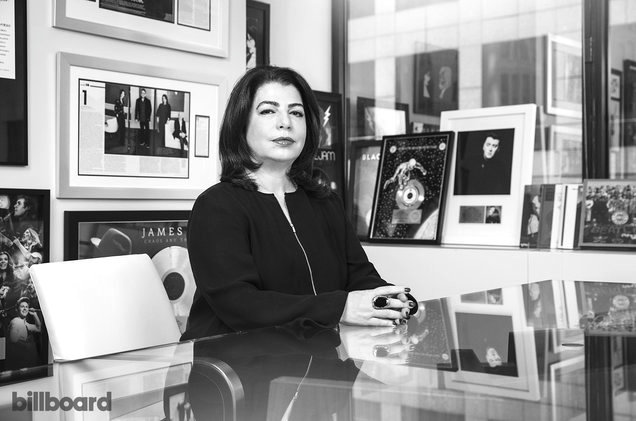Sitting down with the veteran label executive, dedicated philanthropist and UJA Music Visionary of the Year.
“I’m a child of the ’60s,” says Michele Anthony. “So there’s no demarcation between work and philanthropy or activism.”
Sitting on a couch in the listening room next to her New York office, Anthony is explaining how her job as executive vp at Universal Music Group connects to her charitable work — chairing the Global Poverty Project’s Global Citizen Tickets Initiative, raising money for the women writers retreat Hedgebrook and working with pro-choice organizations. On June 14, Anthony, 61, will be honored for both her philanthropic work and professional accomplishments as Jewish philanthropy organization UJA-Federation of New York’s Music Visionary of the Year.
At Universal, Anthony helps manage the company’s U.S. labels, global catalog and brand partnerships operations. She also oversees its U.S. commercial services division, where she assists labels in pursuing new businesses. She has been in the music industry since she was a teenager, starting out by helping her father, Dee Anthony, who managed Tony Bennett and Peter Frampton, among others; he helped bring a wave of British acts to the United States in the 1960s and ’70s, including Joe Cocker and Traffic.
“I literally grew up with bands coming over from England and sleeping on our living room floor,” says Anthony. “When I was 13, I’d go to the early show and the late show at the Fillmore East, and my dad would argue about the night’s take and then put it in my green-fringed suede bag. Because who would ever look for it there?”






